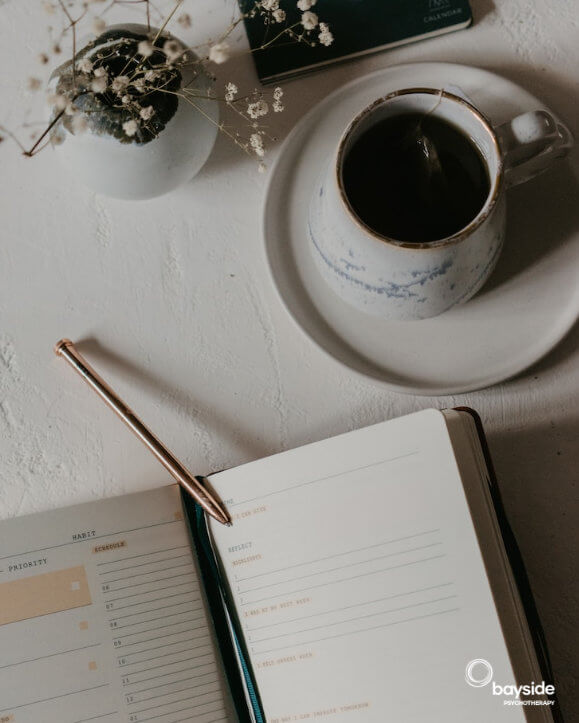People without a needle phobia, or trypanophobia, don’t realise just how frightening a routine injection can be. Of course, no one really enjoys being pricked with a needle — but for those who are truly phobic, the dread goes much deeper. For them, each vaccination or blood test is a terrifying ordeal.
Trypanophobia can drive sufferers to great lengths to avoid needles — including staying away from the doctor altogether. This can have negative consequences for their health, while the knowledge that they’re postponing the inevitable can lead to more and more anxiety. The fact that they’re likely to have encountered scorn and impatience from others about their fear just makes everything worse.

What Causes Someone to Be Afraid of Needles?
Many people suffer from a fear or phobia of needles, but for some people this phobia presents as extreme fear that is so intense it prevents them from getting partaking in procedures involving needles, even when medically necessary.
A needle phobia may stem from:
- Painful Past Experiences: Unpleasant memories with needles or injections can amplify future anxieties.
- Phobias: Some individuals have a deep-rooted phobia of needles, leading to severe panic, fainting or anxiety disorders.
- Mental or Behavioural Issues: Certain conditions can heighten fears around needles.
- Communication Barriers: Disabilities that affect understanding or communication can cause an intense fear of needles.
Managing the Fear:
- Being Informed: Knowing what to expect can help.
- Pain Management: Techniques like numbing creams or distraction can reduce pain.
- Support: Cognitive Behavioral Therapy (cbt) from healthcare providers can offer understanding and strategies to cope.

How To Overcome A Fear Of Needles
Our therapists at Bayside Psychotherapy endeavour to help you gain self-control and work through your fear of needles. Whether you prefer to meet with a counsellor face-to-face at our Melbourne clinic in Highett, or from the comfort of your home, via secure online connection, we’re here for you. You can also download a targeted self-hypnosis recording for needle phobia to help you get started. The first step to getting help is the most important, and you can take it today.
Needle Phobia is Common
Needle phobia among individuals of all ages is a concern, especially in younger children. An intense fear of needles can cause the total avoidance of visiting a health care provider, this can lead to children and adults developing vaccine hesitancy. This anxiety can stem from past traumatic experiences, innate aversions, or even societal influences.
Need needle phobia hypnotherapy?
Start Now
How Does Bayside Psychotherapy Approach Treatment for Trypophobia?
Our training enables us to use one or a combination of different methods, including psychodynamic therapy, dreamwork, neuro-linguistic programming (NLP), Buddhist psychotherapy, Hypnotherapy, and other forms of counselling. We don’t believe in a one-size-fits-all solution and we’ll consult with you until we find the best approach for your needs.
Seeking Professional Treatment For Fear Of Needles
Don’t let your fear of needles result in you neglecting your health!
Do you have any questions for us? Get in touch with us through our online contact form.
Call Bayside Psychotherapy on (03) 9557 9113 to find out if we’re able to help you. Your call is completely confidential, and there’s absolutely no obligation.
You can also book an appointment by using our online booking form for online appointments. Or, if you prefer, you can book an in-clinic session.
Self-hypnosis may also work well when used in conjunction with counselling. You can download our Needle Phobia Self Hypnosis recording from our website.
What Causes Needle Phobia?
Needle phobia often stems from a traumatic experience in childhood, but sometimes people have no idea where their feelings of fear and panic came from. And as with all phobias, the reasons can be more complicated than you might expect. Investigating the underlying causes of ‘irrational’ fears through counselling may be a good way of addressing the problems those fears can cause in your daily life.
Whether your symptoms are fainting, hyperventilating, turning pale, running in terror or just feeling nauseous, needle phobia is a real problem with real consequences, ranging from embarrassment to contracting diseases unnecessarily. The experienced therapists at Bayside Psychotherapy have worked with many patients who needed treatment for this phobia, and many others.
How Do You Distract A Phobia Of Needles?
Distraction techniques for Trypophobia can be achieved through various methods such as:
- Deep Breathing: Slow, purposeful deep breathing can help to calm the mind and body.
- Virtual Reality (VR): VR is very useful for children by simulating a calm environment and serves as a distraction.
- Engage in Conversation: Talking to the healthcare professional or a companion can divert attention.
- Listen to Music: Wearing headphones and listening to calming music may help promote relaxation.
- Use Visualisation Techniques: Thinking of a peaceful place or happy memory can help block out the pain.
- Tensing Muscles: Tensing of the muscles or grasping an object can help.
If the phobia is severe, self-help strategies may not be very useful, in these cases it is best to consult a therapist or counsellor for coping strategies.
How Long Will Treatment Take?
No two courses of treatment are the same. The duration of your treatment will depend on your unique circumstances and on the progress you make with your therapist. People may feel a noticeable improvement right away, but usually, a longer time frame is indicated for lasting success. Throughout the process, your practitioner will evaluate the success of your treatment and adjust it as necessary, until you’re ready to space out sessions and make a plan to discontinue.
You can enquire by calling (03) 9557 9113 or use our contact form. If you want to get started right now, easily book online.
Note: Whilst we will do our best to assist you, we rely on our clients’ full commitment to and participation in the treatment process to optimise results. Although some of our therapists work with people presenting with this condition, no guarantees of any outcomes can be made.
Reception Phone Hours
- Monday 8:30am to 5:30pm
- Tuesday 8:30am to 5:30pm
- Wednesday 8:30am to 5:30pm
- Thursday 8:30am to 5:30pm
- Friday 8:30am to 5:30pm
Closed on public holidays
Choose your own date and time for an online or in-clinic session
Therapist Hours
- Monday 8:00am to 8:00pm
- Tuesday 8:30am to 8:00pm
- Wednesday 8:30am to 8:00pm
- Thursday 8:30am to 8:00pm
- Friday 8:30am to 8:00pm
- Saturday 8:00am to 6:00pm
Closed on public holidays








